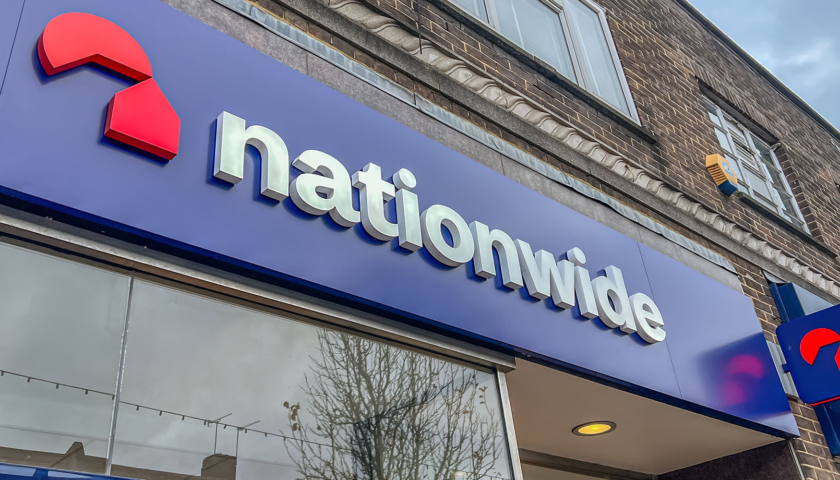When preparing your financial affairs for a mortgage application, most first-time buyers are pretty clued up on the potential mishaps to avoid.
You will be well aware missed bill payments, high amounts of debt and a less than impressive credit score will not help you gain that all-important approval from a mortgage lender.
But there are some other, less obvious, financial errors you could be making which will raise eyebrows amongst lenders.
These small misdemeanours might seem harmless to you but for the discerning lender, they are red flags.
According to mortgage broker Mojo Mortgages, while many factors will be taken into consideration at application stage, including your creditworthiness, affordability, deposit size and personal circumstances, the information on your bank statement can play a part too.
Here, to help you, John Fraser-Tucker, head of mortgages at Mojo Mortgages has revealed nine additional indicatorsthat could jeopardise your application.
- Patchy payments
Irregular deposits into your bank account rather than a consistent monthly salary payment can be a sign of instability, said Fraser-Tucker.
“It could suggest you might struggle to keep up with your mortgage payments every month if your income varies regularly,” he added.
If you are self-employed, your bank balance may follow these inconsistencies, ditto people who have been through multiple job changes. However, Fraser-Tucker said, in this case lenders will ask for three years of bank statements to help them assess your income more accurately.
- Risky spending habits
A lottery ticket purchase here and there is unlikely to raise any eyebrows, said Fraser-Tucker, but regular betting shop or gambling site transactions will be seen as a major red flag.
“It suggests risky spending habits, which may raise concerns on whether you’ll prioritise mortgage repayments,” he added.
- Bank payment banter
Beware when using your banking app to pay friends and family. Fraser-Tucker warned: “Whilst it can seem fun to come up with ‘creative’ payment references when transferring money to friends and family, be careful this doesn’t teeter into inappropriate territory as lenders are unlikely to see the funny side.
“At best, it’ll cause delays as they’ll want an explanation. At worst, it could lead to rejection. Avoid delays (and embarrassment) by using genuine references that reflect what the transfer was actually for.”
- Concerns about cash
Try to avoid frequent and large cash withdrawals in the time leading up to your mortgage application. Fraser-Tucker said this can make lenders nervous because it can raise suspicion of fraudulent activity.
He added: “It can also be a particular concern for self-employed applicants, as it might suggest undeclared income.”
- Unexplained large deposits
Equally, any large deposits into your account can raise similar concerns. Fraser-Tucker said those linked to an unknown source or ones that seem unusual compared to your normal transactions, are likely to be questioned.
“Perhaps you’ve come into some inheritance,” continued, “been gifted money or had a bonus from work – these are all legitimate reasons to explain to the lender, but you may need to provide proof of the source of these funds.”
- Spending secrets
“Forgetting to mention a monthly subscription, a small loan or a credit card you barely use in your application might not seem like a big deal,” said Fraser-Tucker, “but any undisclosed info will understandably make lenders wary, as it could suggest you’ve been dishonest in other areas of your application too.”
So, be completely upfront about your income, regular spending and any existing debts.
- Payday mayday
Payday loans can indicate you find it tricky to manage your money and therefore make lenders wary.
“Even heavy reliance on Buy Now, Pay Later schemes can cause issues,” warned Fraser-Tucker, “as relying on short-term credit could suggest you’re living beyond your means.”
- Overdraft overuse
If you are regularly dipping into your overdraft, especially if you’re exceeding your limit, this can be a sign that you’re living beyond your means, said Fraser-Tucker.
“It suggests you don’t have enough of a financial buffer, which could be a problem if interest rates rise or your circumstances change,” he added.
- Suspicious splurging
Tempting as it may be in the run up to your mortgage application to purchase items to adorn your new home, this could have a harmful impact on your application. Indeed, it may skew the lender’s view of your affordability.
“Make sure you keep some cash in your bank account as a financial buffer, and try not to overspend in the months leading up to your application,” he advised.
Your mortgage application – what will go under the spotlight?
Of course, lenders are not just looking to catch you out – they are looking for evidence you are good potential customer. But they will need to put your bank statement under scrutiny to do this.
According to Mojo, they will meticulously review bank statements to understand your financial health and spending habits.
This assessment enables to them to verify your declared income, monthly outgoings (bills, subscriptions, debt repayments), and helps to confirm a debt-to-income ratio. Lenders will also want to confirm the source of deposit funds and search for indicators of financial instability.
They will ask for three to six months’ worth of statements – possibly more for self-employed applicants.
Fraser-Tucker said: “Lenders need to ensure you’re a responsible borrower who can comfortably afford your mortgage repayments.
“Think of your bank statement as a financial CV – you want it to represent you accurately and showcase your finances in a good light,” says
Your mortgage lender will also look beyond your bank statement
“When you apply for a mortgage,” said Fraser-Tucker, “lenders are playing detective. They cross-check all personal info, dive deep into income versus spending, and consider stability (length of employment, address history, UK residency), deposit source, and credit history.”
“Lenders also confirm electoral roll registration for identification. Every lender has their own rulebook, and some won’t lend on certain property types, making a mortgage broker especially helpful for all applicants, particularly first-time buyers.”
Contact one of our highly experienced mortgage advisors today on 0121 500 6316 to discuss your mortgage needs.



